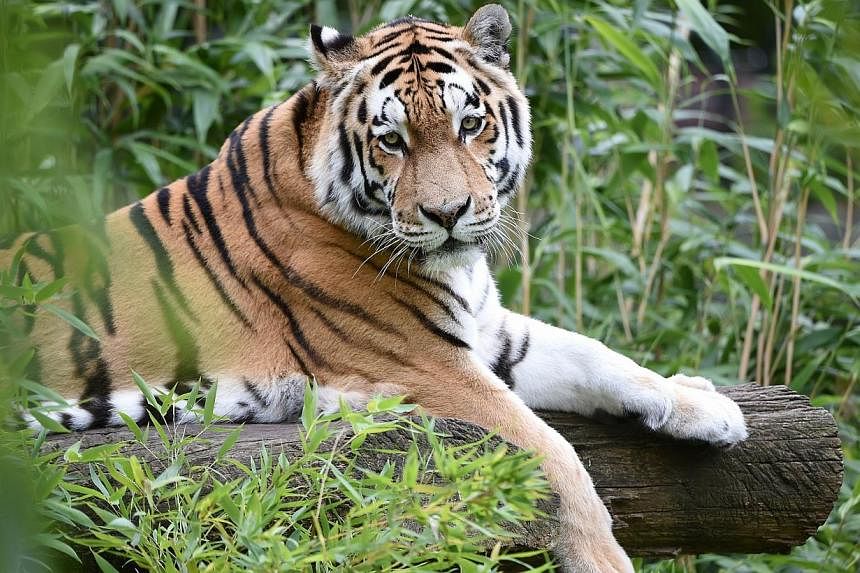BEIJING (Reuters) - China is on the hunt for a Siberian tiger released into the wild by Russian President Vladimir Putin, state media said, after the animal roamed across the border, likely in search of food.
The tiger, named Kuzia, was one of three of the rare wild cats that Putin helped release into Russia's remote Amur region in eastern Siberia in May.
Tagged with a tracking device, it has been spotted in China's Taipinggou nature reserve in northeastern Heilongjiang province, the official Xinhua news agency said, citing officials.
"A Russian expert called to tell us the location of the tiger and expressed the hope that we can protect it," nature reserve director Chen Zhigang told Xinhua.
Chen said forestry officers would set up dozens of cameras to capture images of the tiger and notify local farmers.
The tiger should find plenty of food among the reserve's wildlife, Chen said, though officials were prepared to "release cattle" into the area to feed it.
Putin was feted by Russian media in 2008 for supposedly saving a television crew from an attack when he shot a Siberian tiger with a tranquilizer gun after it escaped from wildlife specialists at a national park.
The former KGB spy has carefully cultivated a macho image with other wildlife stunts, activities he has said are worthwhile because they draw attention to conservation projects.
China's insatiable demand for tiger products, often used in Chinese medicines, has helped drive indigenous subspecies of the animal in the wild to the brink of extinction.

